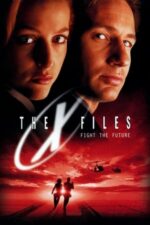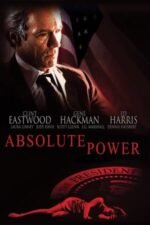The Long Shadow: When Cinema Confronts Government
Isn't it fascinating how often we see governments – in all their messy, powerful glory (or lack thereof) – pop up in our favorite films? It’s not just about explosions and political intrigue; it’s about exploring the fundamental relationship between individuals and the structures that supposedly protect them. From subtle anxieties to outright dystopias, cinema has consistently held a mirror to power, sometimes flattering, often unflattering.
Think about Good Night, and Good Luck. Clooney's film isn’t just a historical recreation of Edward R. Murrow’s challenge to McCarthyism; it's a stark reminder of how easily fear can be weaponized by those in authority. The black-and-white cinematography itself reinforces that sense of timelessness – this could be happening again, right now. It makes you think about the responsibility of journalism and the fragility of free speech, something we’re grappling with more than ever these days. I remember seeing it years ago and being genuinely chilled by how relevant it felt, even decades after the events depicted.
But government's portrayal in film isn't always so… nuanced. Bullets of Justice, for example, throws us headfirst into a gloriously over-the-top scenario where genetic experimentation gone wrong has led to pig-human hybrids ruling the world. It’s pure B-movie fun, sure, but underneath that layer of absurdity lies a commentary on unchecked scientific ambition and the potential consequences when governments prioritize power over ethics – a theme we see echoed in countless sci-fi narratives, from Gattaca to The Matrix. It's a darkly comedic cautionary tale about what happens when you mess with nature (and maybe don’t trust your government’s research).
Then there's the more insidious portrayal, as seen in America: Freedom to Fascism. This documentary dives deep into complex economic systems and raises uncomfortable questions about who truly controls the levers of power. Whether or not you agree with its conclusions, it sparks a vital conversation about accountability and transparency – something that’s sorely needed across the political spectrum.
And let's not forget films like Unrest, which highlights how government institutions can fail individuals facing complex medical challenges. Jennifer Brea’s story isn’t about grand conspiracies; it’s about systemic indifference and the fight for recognition when you’re dealing with an invisible illness. It underscores a crucial point: government doesn't always look like politicians in suits; sometimes, it's the bureaucracy that leaves people feeling abandoned.
Ultimately, films exploring government aren't just entertainment; they are invitations to critical thinking. They force us to examine our assumptions about authority, question the narratives we’re told, and consider what kind of society we want to live in. And with A Good American, we see a different angle – an individual fighting against the very system he helped create, highlighting the moral dilemmas inherent in serving any government.
So next time you're looking for something thought-provoking to watch, consider films that tackle this complex subject. You might be surprised at what you discover about yourself and the world around you.






































